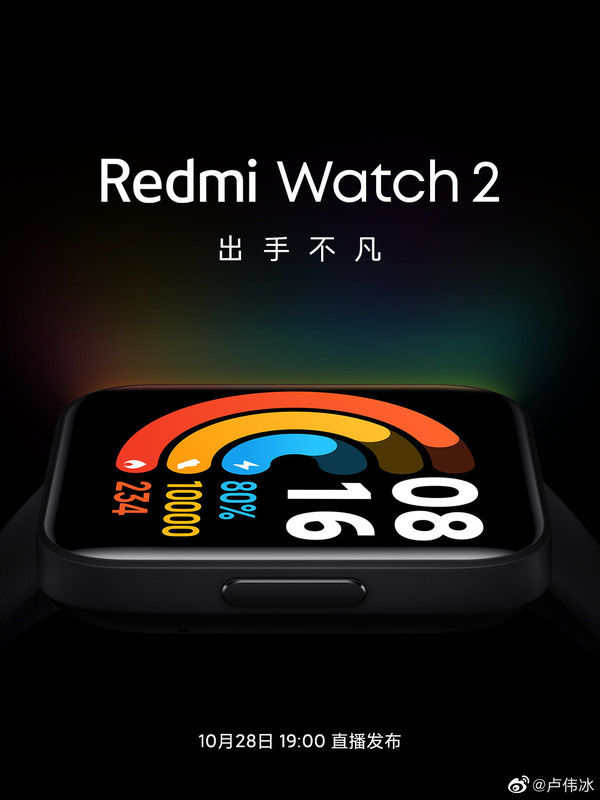本文概述
- TextCell
- 开关单元
- EntryCell
- 影像单元
- ViewCell
以下是单元格的类型:
- TextCell
- 开关单元
- EntryCell
- 影像单元
- ViewCell
在这里, 我们想借助ListView中的TextCell来显示一个人的联系方式。
这些是我们在TextCell中显示人员联系方式的步骤。
例:
在此示例中, 我们在ListView中创建TextCell以显示人员的ContactDetail。
//程式
MainPage.XAML
<
?xml version="1.0" encoding="utf-8" ?>
<
ContentPage xmlns="http://xamarin.com/schemas/2014/forms"xmlns:x="http://schemas.microsoft.com/winfx/2009/xaml"xmlns:local="clr-namespace:XamarinCells"x:Class="XamarinCells.MainPage">
<
StackLayout>
<
Label Text="Contacts Detail" FontSize="Medium" TextColor="Maroon" HorizontalOptions="Center">
<
/Label>
<
ListView x:Name="Mylist">
<
ListView.ItemTemplate>
<
DataTemplate>
<
TextCell Text="{Binding Name}" Detail="{Binding Address}">
<
/TextCell>
<
!--here we bind the Text and Detail of the person in the TextCell-->
<
/DataTemplate>
<
/ListView.ItemTemplate>
<
/ListView>
<
/StackLayout>
<
/ContentPage>
在这里, 我们创建一个类Data.CS, 在其中创建数据。
数据CS
using System;
using System.Collections.Generic;
using System.Text;
namespace XamarinCells{public class Data{public string Name { get;
set;
}public string Address { get;
set;
}}}在MainPage.Xaml.CS的编码页上, 我们创建数据列表, 在其中提供人员信息, 然后借助ListView在TextCell中显示对象(人员)的信息。
MainPage.Xaml.CS
using System;
using System.Collections.Generic;
using System.Linq;
using System.Text;
using System.Threading.Tasks;
using Xamarin.Forms;
namespace XamarinCells{public partial class MainPage : ContentPage{public List<
Data>
people = new List<
Data>
(){new Data{Name="Ayesha Tyagi", Address="A-27, defence colony, delhi, 11024"}, new Data{Name="Vaishali Tyagi", Address="E-377, Sec 16, Noida , 201301"}, };
public MainPage(){InitializeComponent();
Mylist.ItemsSource = people;
}}}执行此程序, 单击仿真器。
输出

文章图片
打印Ayesha Tyagi和Vaishali Tyagi的ContactDetail
开关单元 SwitchCell是一个单元, 结合了标签和通断开关的功能。 SwitchCell可用于打开和关闭功能或用户首选项或配置选项。
例:
在此示例中, 我们将创建一个SwitchCell来显示Switch的文本和功能。
//程序
MainPage.XAML
<
?xml version="1.0" encoding="utf-8" ?>
<
ContentPage xmlns="http://xamarin.com/schemas/2014/forms"xmlns:x="http://schemas.microsoft.com/winfx/2009/xaml"xmlns:local="clr-namespace:XamarinCells"x:Class="XamarinCells.MainPage">
<
ContentPage.Content>
<
StackLayout Padding="10">
<
StackLayout Orientation="Horizontal">
<
Label Text="SwitchCell">
<
/Label>
<
Label Text="{Binding IsToggled, Source={x:Reference Switch}}" TextColor="Black" VerticalOptions="Center" HorizontalOptions="EndAndExpand">
<
/Label>
<
Switch x:Name="Switch" VerticalOptions="Start">
<
/Switch>
<
/StackLayout>
<
/StackLayout>
<
/ContentPage.Content>
<
/ContentPage>
输出

文章图片
EntryCell EntryCell是一个结合了Label和Entry功能的单元格。当我们在应用程序中构建一些功能来从用户收集数据时, EntryCell在这些情况下可能会很有用。它们可以轻松地放置到TableView中, 并且可以视为简单形式。
例:
在这里, 我们在跨平台应用程序开发中使用Xamarin.Forms应用程序在Android中使用TableView创建EntryCell, 并在Xaml中使用Xaml创建通用窗口平台。
为此, 我们必须为跨平台应用程序设置环境。
在这里, 我们将遵循以下步骤:
步骤1:右键单击Project Name, 如屏幕截图所示。

文章图片
步骤2:单击Properties(属性), 如屏幕截图所示。

文章图片
Step3; 选中多个启动项目单选按钮-> 单击应用-> 单击确定。

文章图片
MainPage.Xaml
<
?xml version="1.0" encoding="utf-8" ?>
<
ContentPage xmlns="http://xamarin.com/schemas/2014/forms"xmlns:x="http://schemas.microsoft.com/winfx/2009/xaml"xmlns:local="clr-namespace:XamarinCells"x:Class="XamarinCells.MainPage">
<
ContentPage.Content>
<
StackLayout>
<
Label Text="Xamarin Form Entry Cell Demo in Android and UWP " VerticalOptions="Center" HorizontalOptions="Center" />
<
TableView Intent="Form">
<
TableRoot>
<
TableSection Title="Application Form">
<
EntryCell Label="Name:" HorizontalTextAlignment="Start" LabelColor="Black" Placeholder="Enter Your First Name Here" />
<
EntryCell Label="Age :" LabelColor="Black" Placeholder="Enter Your Age Here" />
<
EntryCell Label="Specialization :" LabelColor="Black" Placeholder="Enter Your Specialization Here" />
<
/TableSection>
<
/TableRoot>
<
/TableView>
<
/StackLayout>
<
/ContentPage.Content>
<
/ContentPage>
执行此程序, 单击仿真器。
输出
在Android中

文章图片
在这里, 在输出中, 这将在Android的TableView的EntryCell中打印人的信息。
输出
【Xamarin.Forms中的单元格用法示例图解】在Windows中

文章图片
影像单元 ImageCell对象用于将图像和文本放入表格中。 ImageCell控件的功能类似于普通页面控件。
MainPage.Xaml
xml version="1.0" encoding="utf-8" ?>
<
ContentPage xmlns="http://xamarin.com/schemas/2014/forms"xmlns:x="http://schemas.microsoft.com/winfx/2009/xaml"xmlns:local="clr-namespace:Label"x:Class="Label.MainPage" Title="Editor Page-XAML">
<
ContentPage.Content>
<
StackLayout Padding="5, 10">
// In the source we have to give the name of the image file.<
Image Source="nature.jpg">
<
/Image>
<
/StackLayout>
<
/ContentPage.Content>
<
/ContentPage>
执行此程序, 单击仿真器。
输出

文章图片
ViewCell 我们可以将ViewCell视为空白。这是我们的个人画布, 用于创建看起来完全符合我们想要的方式的单元。
借助ViewCell, 我们可以自定义表单。
例:
在这里, 我们借助ListView在ViewCell中创建一个页面。
//程序
MainPage.Xaml
<
?xml version="1.0" encoding="utf-8" ?>
<
ContentPage xmlns="http://xamarin.com/schemas/2014/forms"xmlns:x="http://schemas.microsoft.com/winfx/2009/xaml"xmlns:local="clr-namespace:XamarinCells"x:Class="XamarinCells.MainPage">
<
StackLayout>
<
Label Text="Contacts Detail" FontSize="Medium" TextColor="Maroon" HorizontalOptions="Center">
<
/Label>
<
ListView x:Name="Mylist">
<
ListView.ItemTemplate>
<
DataTemplate>
<
!--<
ImageCell Text="{Binding Name}" Detail="{Binding Address}" ImageSource="{Binding Image}">
<
/ImageCell>
-->
<
!--here we bind the Text and Detail of the person in the TextCell-->
<
ViewCell>
<
!--take ViewCell to customize the page-->
<
StackLayout Orientation="Horizontal">
<
Grid BackgroundColor="Maroon" Padding="10">
<
!--with the help of grid we will show the id(sequences of the items) set the padding property-->
<
Label Text="{Binding Id}" TextColor="White">
<
/Label>
<
!--Binding Id bind the id-->
<
/Grid>
<
StackLayout Orientation="Vertical">
<
!--create another stacklayout-->
<
Label Text="{Binding Name}" TextColor="Maroon">
<
/Label>
<
!--create label to bind the name and address-->
<
Label Text="{Binding Address}" TextColor="Purple">
<
/Label>
<
/StackLayout>
<
/StackLayout>
<
/ViewCell>
<
/DataTemplate>
<
/ListView.ItemTemplate>
<
/ListView>
<
/StackLayout>
<
/ContentPage>
在定义了项目的变量名称的位置创建了类, 该名称要显示在页面上。
//程序
数据CS
using System;
Using System.Collections.Generic;
Using System.Text;
namespace XamarinCells{public class Data{public string Name { get;
set;
}public string Address { get;
set;
}//public string Image { get;
set;
}public int Id { get;
set;
}}}在MainPage.Xaml的编码页面上, 我们创建带有ID的项目列表。
//程序
using System;
using System.Collections.Generic;
using System. Linq;
using System. Text;
using System.Threading.Tasks;
using Xamarin.Forms;
namespace XamarinCells{public partial class MainPage : ContentPage{public List<
Data>
people = new List<
Data>
(){new Data{Name="Ayesha Tyagi", Address="A-27, defence colony, delhi, 11024", Id=1}, new Data{Name="Vaishali Tyagi", Address="E-377, Sec 16, Noida , 201301", Id=2}, };
public MainPage(){InitializeComponent();
Mylist.ItemsSource = people;
}}}执行此程序, 单击仿真器。
输出

文章图片
上面的程序打印带有ID号的Ayesha Tyagi和Vaishali Tyagi的联系方式。
推荐阅读
- Android多媒体框架
- Xamarin.Android应用开发基础示例图解
- Xamarin.Android Activity生命周期详细图解
- Xamarin中的视图介绍和用法图解
- Xamarin入门介绍和解释
- Xamarin教程入门介绍
- Xamarin安装步骤详细示例图解
- XHTML教程入门介绍
- XHTML语法介绍和用法详解











